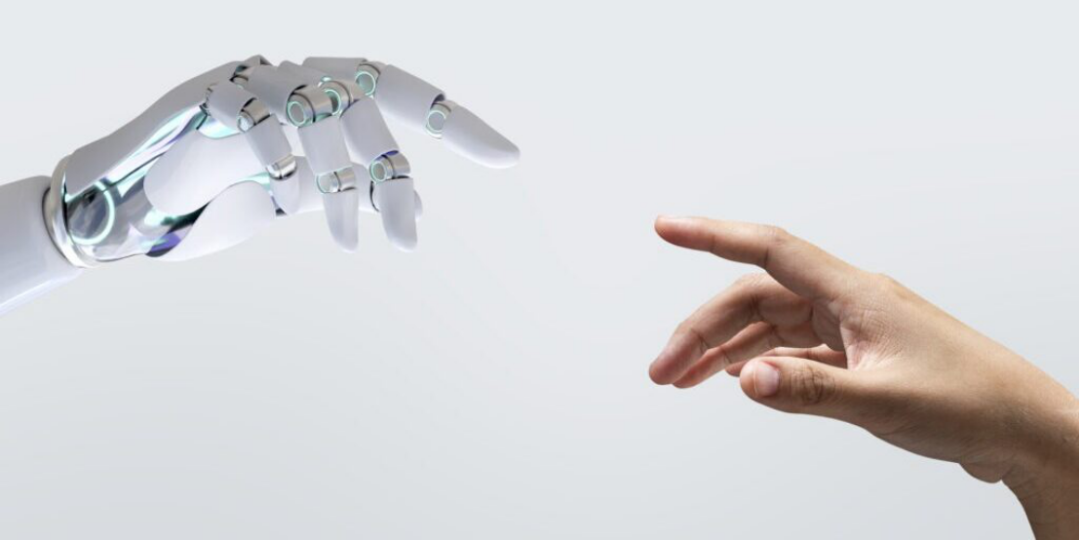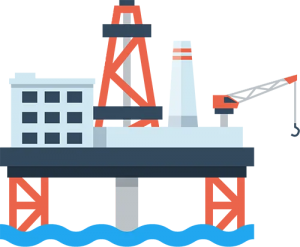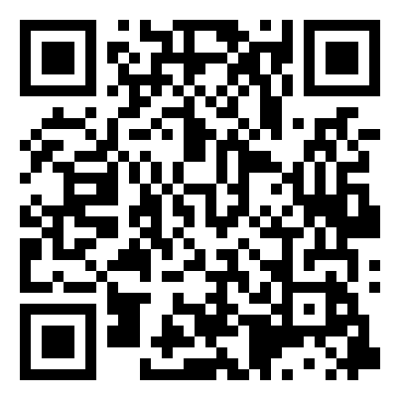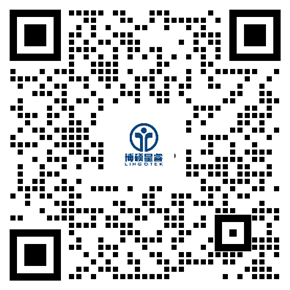技术科普|如何避免不安全翻译?
以下文章来源于国际翻译动态 ,作者张琳
国际翻译动态


Using AI for Translation: (When) is it Safe?
使用AI进行翻译: (何时)安全?
导 读
自从谷歌翻译这一早期阶段以来,自动化翻译已经取得了长足的进步。但是,使用人工智能进行翻译是否安全,何时安全,何时不安全?让我们一探究竟!
If you’re a translation buyer, you’ve probably heard a lot of buzz lately about the artificial intelligence/machine translation (AI/MT) boom. No question about it, automated translation has come a long way since the early days of Google Translate. But is it, or when is it and when is it not, safe to use AI for translation?Let’s take a look! 如果您是翻译买家,您可能最近听到了很多关于人工智能/机器翻译(AI/MT)热潮的讨论。毫无疑问,自从谷歌翻译这一早期阶段以来,自动化翻译已经取得了长足的进步。但是,使用人工智能进行翻译是否安全,何时安全,何时不安全?让我们一探究竟!
When translators talk about the current iteration of AI/MT, they often comment, this time feels different. What’s different? The fact that everyone knows about, and can easily use, the new generation of AI/MT tools. Translators have leveraged technology for a long time, in the form of translation memory tools that “recycle” terms, phrases, and sentences from old translations (done either by that translator or by someone else). 当翻译人员谈论当前的人工智能/机器翻译迭代时,他们经常评论,这次感觉不同。有什么不同?每个人都知晓并且可以轻松使用新一代人工智能/机器翻译工具,这已是事实。翻译人员长期以来一直利用技术,以翻译记忆工具的形式从旧译文(由该翻译人员或其他人完成)中“回收”术语、短语和句子。
But these tools, like the software tools used by many other professions (think accountants, web designers) were fairly opaque: expensive to purchase, and not simple to learn to use. By contrast, anyone who knows how to use a website (so: anyone!) can hop on DeepL or ChatGPT and paste in their text. 但是这些工具,就像许多其他职业(如会计师、网页设计师)使用的软件工具一样,相当模糊:购买昂贵,且学习起来并非易事。相比之下,任何知道如何使用网站的人(任何人!)都可以到DeepL或ChatGPT粘贴他们的文本。
Just because you can translate with ChatGPT or other AI tools, should you? 仅仅因为你可以使用ChatGPT或其他AI工具进行翻译, 就应该这样做吗?
Translators love to fixate on and make fun of AI/MT’s (frequent) hilarious errors. I translate from French to English, and I recently had a client ask me to review a translation in which their MT engine “translated” the name of the Swiss town “Aubonne” as “Augood.” The truth is that, although AI/MT is now quite accurate for “information-only” translations, most professional translators can identify an automated translation after reading the first couple of sentences. 翻译人员喜欢关注并取笑人工智能/机器翻译(频繁的)出现的滑稽错误。我将法语翻译成英语,最近有一个客户向我咨询,他们的机器翻译引擎将瑞士小镇“Aubonne”的名字“翻译”成了“Augood”。事实是,尽管人工智能/机器翻译现在对于“仅供参考”的翻译非常准确,但大多数专业翻译人员在阅读前几句话后就能识别出自动翻译。
Just like every human’s writing style, every AI engine has a writing style, and it’s easy to spot! AI has very little understanding of nuance, subtlety, humor, or any of the other aspects of really good writing; it’s much faster than a human translator when it comes to “French word=English word” translations, but AI stumbles when it comes to well-crafted writing. 就像每个人的写作风格一样,每个人工智能引擎都有自己的写作风格,而且很容易发现!人工智能对细微差别、微妙之处、幽默或任何其他真正优秀写作的方面理解甚少;在“法语单词=英语单词”翻译方面,人工智能比人工翻译快得多,但在涉及精心制作的写作时,人工智能却步履蹒跚。
Here’s the real question:is MT or AI-powered translation the right fit for your work?If you just want to know what something says in your language, or if you’re just trying to convey factual information in another language that machine translation engines handle well (don’t try this with less common languages!), AI/MT with a human reviewer can be a great option. 真正的问题是:机器翻译还是人工智能翻译是否适合你的工作?如果你只是想知道某种语言中的信息,或者是想用机器翻译引擎可以很好处理的另一种语言传达事实信息(请勿尝试使用较少使用的语言!),AI/MT与人工审阅相结合无疑是一个很好的选择。
A fast human translator can translate about 3,000 words in a typical workday. ChatGPT can do that while you grab a coffee, and “free” is obviously everyone’s favorite price. If you’re just trying to understand the basic terms of a contract, or if you want to write a quick, non-mission-critical e-mail, machine or AI language translation can save a lot of time and money. 一名快速的人工翻译在一个典型工作日可以翻译大约3000个单词。ChatGPT 可以在你喝咖啡的时候完成这项工作,而且“免费”显然是每个人最喜欢的价格。如果您只是想了解合同的基本条款,或者想写一封快速、非关键任务的电子邮件,机器或人工智能语言翻译可以节省大量时间和金钱。
At the same time, I’m seeing an increasing number of translation clients who come to me, asking, “You don’t use automated translation software, do you??” They ask this for a few reasons: 与此同时,我看到越来越多的翻译客户来找我,问道,“你不用自动翻译软件吧?”他们提出这样的要求,原因在于以下几点: 01 They’re afraid, probably correctly, that confidential documents uploaded to an online AI/MT system may end up on the AI provider’s servers. 他们害怕,可能是正确的,机密文件上传到在线AI/MT系统可能会最终出现在AI提供商的服务器上。
I know that the paid versions of most MT engines promise not to do this, but I still think that clients worry about it, particularly in certain sectors. I translate for a couple of international family law firms, and here we’re talking about evidence documents that contain people’s most personal information: the details of why their kids were taken away, transcripts of phone calls between them and their abusive ex-spouse, the details of their investment portfolio and how it might be divided in a divorce, etc. etc. Those clients want as few eyes as possible on their documents. 我知道大多数机器翻译引擎的付费版本承诺不会这样做,但我仍然认为客户会担心,特别是在某些特定领域。我为几家国际家庭律师事务所翻译文件,在这里我们谈论的是包含人们最私人信息的证据文件:孩子们被带走的具体细节,他们与虐待前配偶之间的电话记录,他们的投资组合的细节以及在离婚中如何分割等。那些客户希望尽可能少的人看到他们的文件。 02 They, too, are word people. 他们也是文字工作者。
The best and the worst thing about translating with ChatGPT, DeepL, etc. is that an AI/MT tool doesn’t spend half an hour thinking about the difference between three potential article headlines. DeepL doesn’t lie awake at night pondering the difference between the words “inquire” and “delve into,” or the difference between “profits rose significantly” and “profits skyrocketed.” When your business wants to inspire an emotional response in a reader; persuade or convince someone; when your business’ reputation or legal risk are on the line, you really want a specialized human translator on the job. 使用ChatGPT、DeepL等进行翻译最好的和最糟糕的事情是,人工智能/机器翻译工具不会花半个小时思考三个潜在文章标题之间的区别。DeepL不会在夜晚辗转反侧,思考“询问”和“深入研究”之间的区别,也不会思考“利润显著上升”和“利润飙升”之间的区别。当您的企业希望激发读者的情感反应;说服或劝服某人;当您的企业声誉或法律风险处于危险之中时,您真正需要的是一位专业的译员来完成这项工作。
03 They’ve been burned in the past. 他们过去曾受过伤害。
Many clients want a personal relationship with a translator (whether that person uses AI/MT or not) because they’ve been burned by a different model. Translation agencies fill an important role in the language industry. If you have to translate patient safety information about a medical device into 27 languages, you’re probably going to want to work with an agency. And it’s also true that clients who want consistency, a single point of contact, someone who’s going to know the right questions to ask and the right advice to give, are better off with a freelancer. 许多客户希望与翻译人员建立个人关系(无论该人是否使用人工智能/机器翻译),因为他们曾被不同的模式而受挫。翻译机构在语言行业中扮演着重要角色。如果你必须将有关医疗设备的患者安全信息翻译成27种语言,你可能会想与一家代理机构合作。而且事实上, 那些想要一致性、单一联系人、知道如何提出正确问题和给出正确建议的客户,更适合与自由职业者合作。 As an example, I was translating some materials for one of my French university clients (they have “international programs” that are taught in English, into which they accept students who speak zero French). And I asked them, had they thought about any services or programs for their international students’ parents? Parent relations are pretty much nonexistent in the French university system, and I think they thought I was joking, until I gave them the example of my own daughter’s university, which hosts welcome events for parents, a family weekend, and maintains a parent Facebook group. This French school is a high-priced private university, and I told them that many American parents funding their kid’s education would be looking for this type of thing. AI doesn’t know this! 例如,我正在为我的一位法国大学客户翻译一些材料(他们有用英语授课的“国际项目”,这些项目接受零法语的外国学生)。我询问他们,是否考虑过为国际学生的家长提供任何服务或项目?在法国的大学体系中,家长关系几乎不存在,我想,他们可能以为我在开玩笑,直到我提到了女儿所在大学的例子,该大学为家长举办欢迎活动、家庭周末,并维护一个家长Facebook群组。这所法国学校是一所高价的私立大学,我告诉他们,许多资助孩子教育的美国父母会寻找这种类型的学校。人工智能对此一无所知!
There are lots of pros and cons to AI, but I honestly think that, “Is there a difference between AI and human translation?” (yes, of course there is!!) is the wrong question, and that we’re better served by asking, “Is using MT or AI for translation the right decision for the job?” 人工智能虽然有利有弊,但我认为,“人工智能和人工翻译之间有何区别?”(是的,当然有区别!!)这个问题实属不妥,“使用机器翻译或AI进行翻译是否为最佳决策?”才是明智之问。
(原文网址:https://www.atanet.org/resources/using-ai-for-translation-when-is-it-safe/)


特别说明:本文内容选自ATA官网,仅供学习交流使用,如有侵权请后台联系小编删除。

群内会定期推送语言服务行业最新动态、活动预告、竞赛通知?等内容~
欢迎你的加入?!

